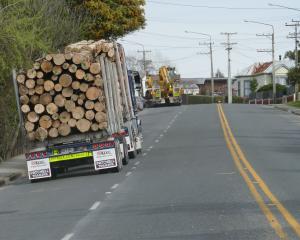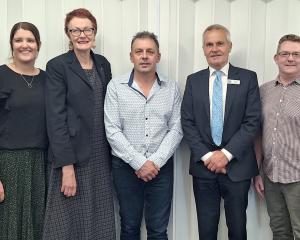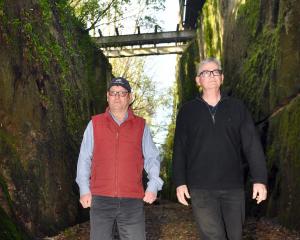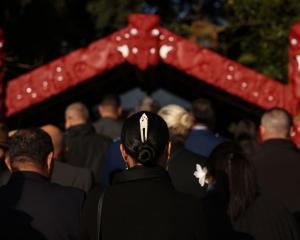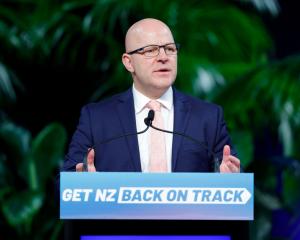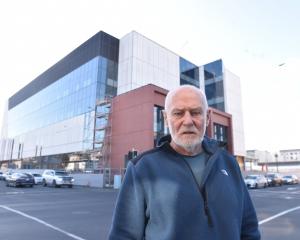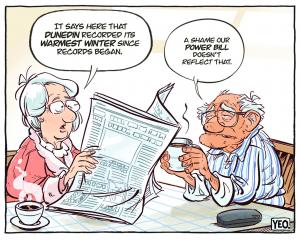
The government took urgency early on Tuesday to try to progress the Bills it did not get to pass the last time it took urgency, due to the Opposition filibustering for all it was worth.
Thanks to the quirks of parliamentary time keeping, that meant that every sitting day this week was still actually Tuesday — but by every one else’s clock it was on Wednesday when the House got to the not very much anticipated Forests (Log Traders and Forestry Advisers Repeal) Amendment Bill’s first reading.
This very short and straightforward Bill, in theory, should have sailed through as Labour is not opposed to the law change, which disestablishes the registration system and all associated requirements for log traders and forestry advisers.
The Greens, however, as is so often the case, were on the side of the trees — and, more generally, small forest owners, and more particularly Māori-owned forests.
There are many of these, particularly in the Far North, and the Greens and Te Pāti Māori, which also voted against the Bill, fear that they could fall foul of unlicensed and unscrupulous traders.
New Zealand First is a supporter, although somewhat embarrassed about it.
"I find myself in a rather invidious position," Lawrence list MP Mark Patterson noted, "of getting up to support a Bill that I was part of a party that helped bring into being. So that is politics for you."
Indeed, and after briefly and grudgingly confessing that "I think, sometimes in politics, there’s some things you’re not going to die in a ditch for, and New Zealand First is not going to die in a ditch for this Bill," he left the House for a dead rat dinner.
Mr Hernandez’s turn came during the committee stage, when the Greens were trying to conjure up as many questions as possible, despite various attempts from Waitaki National MP Miles Anderson to bring the debate to a close.
"I just had a few questions that I wanted to ask around it, but I wanted to preface it a little bit with some context," Mr Hernandez said in opening.
He, it turned out, had done his maths and divided the annual income from the forestry sector — about $6 billion — by the roughly $800 cost of either applying for or renewing a registration and paying an annual levy — and questioned whether that really was an undue cost or regulatory burden on business.
He then asked Forestry Minister Todd McClay just what evidence he actually had that the industry was over-regulated.
"I’m coming at this from a climate angle as well as the kind of regulation angle," he continued.
"Forestry will play an important role in meeting our kind of domestic targets and also potentially our international targets, so I would also be interested in hearing from the minister whether there has been any analysis done on the impact of repealing regulations on the extent of forestry coverage?"
Lastly, he wanted to know what impact, if any, that this might have on the emissions trading schemes.
"So I’m really curious to hear the minister after the dinner break, perhaps."
Sadly for Mr McClay, the dinner bell did not come fast enough to give him time to digest those questions.
"When we say, ‘do we need this regulation?’, well, the member’s right that the cost is about $500 per year, but that’s the cost to run the system of registration on the part of the government. It’s not the cost to those who have entered into it or the obligation, the cost that they have on a daily basis to collect information, report and do other things," he said.
"We’re giving that money back because we won’t have a system, but actually that’s not the cost to the sector. The actual cost is the things that the legislation imposed upon them and requires them to do."
Mr McClay hurriedly brought his contribution to a close, noting that "in many of the areas that members have raised questions, they fall outside of the scope of the legislation of what we’re changing".
And with that Mr Hernandez learned another parliamentary lesson: the dinner bell is the most powerful force in the building and that it was time for tea .
Wait your turn
Dunedin Labour MP Rachel Brooking really — REALLY — wanted to speak in the committee stages of the Land Transport (Clean Vehicle Standard) Amendment Bill on Thursday, but kept on being stymied by her colleagues.
"Aw," she exclaimed after Arena Williams was picked by the Speaker ahead of her ("I understand that the Hon Rachel Brooking is upset, but she will, I’m sure, have an opportunity to take her call," Ms Williams apologised), and then by Tangi Utikere, who also noted Ms Brooking’s keenness and hoped that she would get a future call.
Happily, she was up next, although opening her remarks by saying "Despite my excitement, I do not have as exciting a contribution as some of my very learned colleagues have made on particularly policy issues," was not exactly the best way to retain the attention of her by now captive audience.
